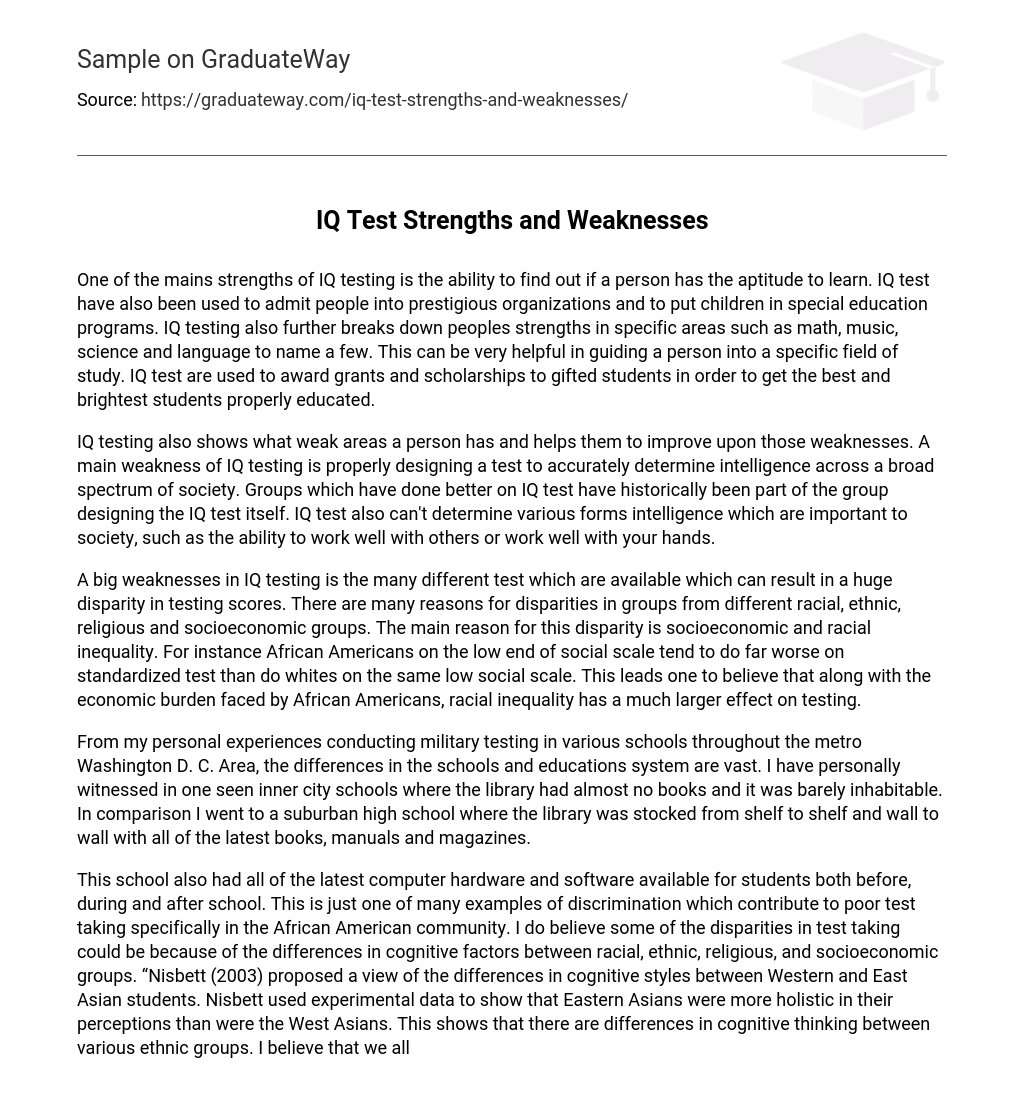The importance of IQ testing lies in its evaluation of a person’s learning capacity and qualification for exclusive groups and specialized education initiatives. Moreover, IQ tests reveal an individual’s particular aptitudes in areas such as math, music, science, and language; this knowledge can greatly influence career decisions. Additionally, high-performing students on IQ tests are granted scholarships and funding to ensure they receive the education they deserve.
IQ testing seeks to pinpoint an individual’s weaknesses and assist in their improvement. However, a major obstacle in IQ testing involves developing a test that accurately measures intelligence across diverse populations. Throughout history, those involved in constructing IQ tests tend to obtain higher scores compared to others. Additionally, IQ tests overlook assessing crucial forms of intelligence such as social skills or practical aptitude.
One major drawback of IQ testing is that it can result in significant score variations when multiple tests are taken. These score differences are influenced by factors such as race, ethnicity, religion, and socioeconomic status. The main reason behind these disparities is the existence of both racial inequality and socioeconomic disparities. For example, African Americans who hold lower social positions tend to perform much worse on standardized tests than their white counterparts with similar social standings. This indicates that test outcomes are impacted not only by economic difficulties faced by African Americans but also by racial inequity.
During my military testing in different schools across metro Washington D.C., I have observed notable differences among educational institutions. One particular experience that remains vivid is the sharp contrast between inner-city schools, characterized by a severe shortage of books and an almost unlivable environment, and suburban high schools, where the library proudly exhibits shelves stocked with up-to-date books, manuals, and magazines.
This school offers students access to modern computer hardware and software both before, during, and after school. Such discrimination is just one example that contributes to the poor performance on tests within the African American community. I believe that differences in cognitive factors among various racial, ethnic, religious, and socioeconomic groups may be responsible for some of the disparities in test scores. Nisbett (2003) suggests through experimental data that there are cognitive style differences between Western and East Asian students. The research findings show that Eastern Asians have a more holistic perception compared to their Western counterparts, indicating cognitive thinking variations among ethnicity groups. However, I suggest that there are also similarities in cognition within racial and ethnic groups which may demonstrate differently during IQ testing due to social-economic status, religion or social class.
IQ testing has its advantages and disadvantages for people from diverse backgrounds, including different races, ethnicities, religions, and socio-economic statuses. It functions as a means to identify personal strengths and weaknesses. Nevertheless, I hold the viewpoint that an individual’s intelligence cannot be completely measured through a written exam alone since it reinforces the misconception of all-encompassing knowledge. Thus, it is essential to carefully consider the impact of racial inequality and socio-economic status on ongoing discussions surrounding testing in our country.
In my opinion, the significance of class and race in this debate should be emphasized more than cognition and genetics. Drawing from my personal experiences within the educational system, I have witnessed how one’s socioeconomic status and racial background can contribute to lower performance in tests, ultimately leading to inaccurate IQ test outcomes. References used for this argument include Miller, Barbara (2010). “Looking at Us: An Interdisciplinary Study of Human Behaviors in Anthropology,” Second Edition by Daniel Kelly, Edouard Machery, and Ron Mallon (2009). Additionally, J. P. Farr, Ed. D (1996) provides valuable insights on race, IQ, heredity, and oppression.





